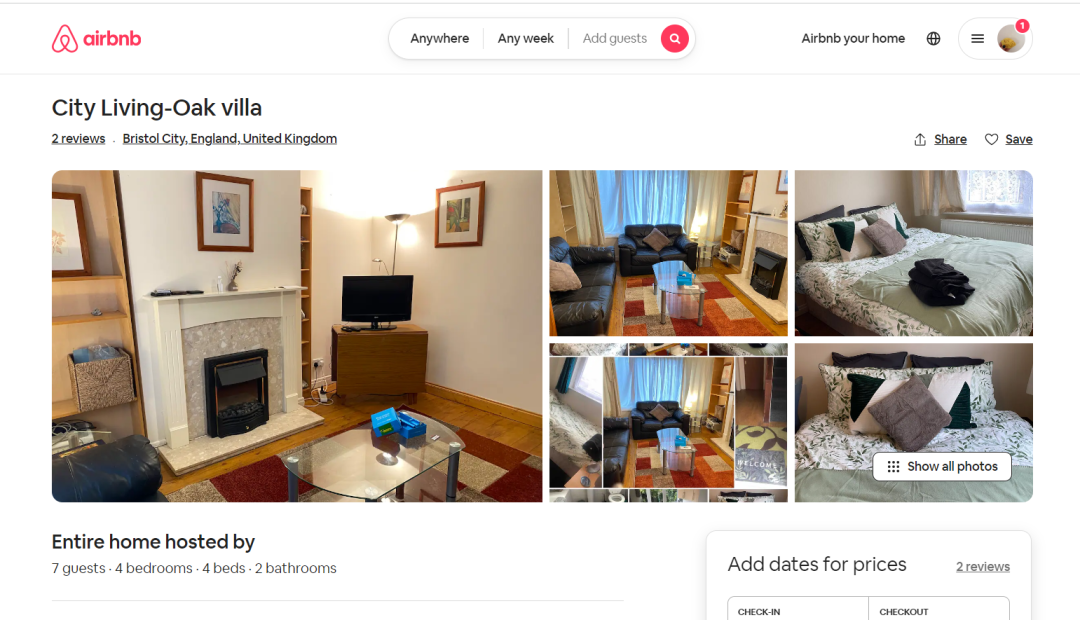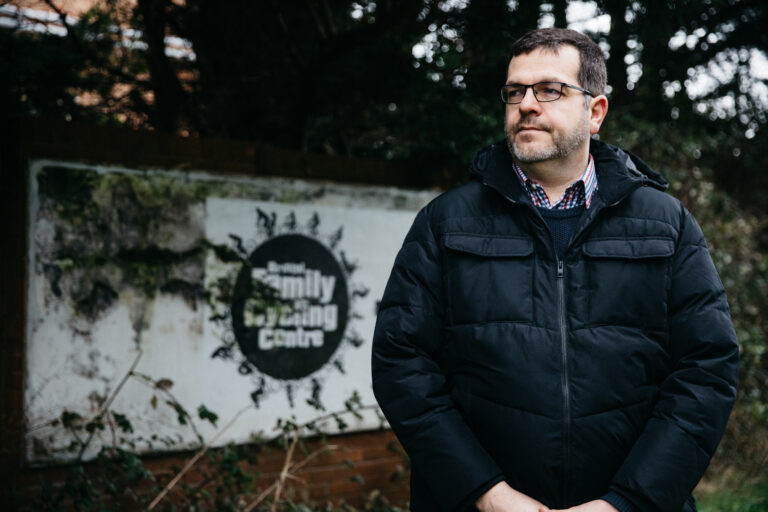Bristol rogue landlord rented out room despite banning order, tenants say

NOTE: This article has been updated to reflect a response sent by Naomi Knapp after it was initially published
A rogue Bristol landlord rented out a house to new tenants after she had been banned from doing so, and offered to let them stay past the legal deadline if they paid cash-in-hand, former tenants have told the Cable.
Naomi Knapp, who owns around 30 properties in Bristol, mostly in the south of the city, was banned from operating as a landlord in August 2022. Most of her tenants were students and young renters having to live in poor conditions amid Bristol’s increasingly unaffordable rental market.
The banning order of five years, which Bristol City Council applied for, came after Knapp was fined £22,000 for a series of breaches, including poor upkeep of communal areas and fire safety.
As part of the banning order, Knapp was prohibited from renting out her properties to new tenants and required to evict all sitting tenants, including me and my housemates, by 1 December 2023.
But now the Cable has uncovered evidence of a potential breach of this order: that months earlier Knapp had rented out one of her houses to new tenants, who say they lived there without a contract – a claim the landlord denies but did not provide proof.
These new revelations come after my Cable investigation uncovered that at least nine of Knapp’s houses were being advertised on Airbnb via a third-party host. The listings were removed by Airbnb shortly after we contacted the holiday lets website for comment.

‘If the council comes over, don’t answer the door’
In May 2023, 21-year-old JJ and her partner Max moved into a double room in a house in Bedminster. They say they were not given a contract, but had no idea that the house was owned by a notorious rogue landlord and that they shouldn’t be living there.
“I was signed onto Universal Credit and I said that we needed some sort of document that said we [had moved] there and she wouldn’t provide them,” JJ tells me, as we sit in the Tobacco Factory cafe. We’d met a few months before, just after receiving our eviction notices. She wanted to tell her story due to frustration at both Knapp and the council’s failure to do anything to improve their living conditions.
“We didn’t have a tenancy [agreement] or anything, and she said if the council came over to not answer the door. We found out from other people that it was because she wasn’t allowed to let us live there.”
It wasn’t just the confusing legal situation surrounding their tenancy that was a problem – the conditions in JJ‘s house were less than ideal too.
“Two of the support posts fell out of the handrail on the stairs a couple of weeks before we were supposed to leave,” JJ tells me. “There were multiple holes in the floor, it was leaking, pretty much all of the sockets were smashed… it was not great.” One of the plugs was so dangerous that the tenants had hidden it behind a mirror to prevent anyone from accidentally touching it, JJ adds.

On 30 November, the day before the eviction date, JJ says a locksmith came to the house and drilled through her door. “He pushed the door past me and said Naomi sent him,” she says. She describes being terrified and unsure if calling the police was an option. “She [Naomi] said that she’d tried to come round and the locks were changed, but we hadn’t changed the locks,” she adds.
After the locksmith left the property and gave JJ and her partner a key each, the two were so worried about someone being able to get in that they barricaded the door with household objects. They moved out the next day into a better maintained property with a tenancy agreement.
Knapp tried to appeal her banning order, and when this was thrown out in May 2023, the court decision stated that Knapp’s existing tenants would not be affected for a further six months.
But this did not apply to new tenants – which would suggest that JJ’s case represents a breach of the banning order.
In late September, when Knapp paid JJ and Max a visit. “She said she would be sending us an eviction notice but if we paid her directly in cash we were allowed to stay,” JJ says.
Another of Knapp’s former tenants, who spoke under the condition of anonymity, had a similar experience. “Naomi actually offered us to stay past the eviction date and pay her cash in an under-the-table deal,” they said.
“But she said we would have to keep the lights off at the front of the house so it didn’t look like people were living there. She also said not to open the door to anyone.”
The Cable put these claims to Bristol City Council, but it declined to comment while its investigation was ongoing.
The Cable also spoke to another former tenant, who said they had “occasional contact” with Knapp. They told us that when Max and JJ moved in after them, they signed a deed of assignment – a document to transfer the tenancy over from the former tenant. However, Max says he never signed anything.
Neither Knapp or the tenant who spoke to us on her behalf would provide evidence of their claim, which Max and JJ deny. And even if a deed of assignment was signed, it remains unclear whether the landlord’s actions would still be a breach of the banning order or a loophole that would allow her to bring in new tenants.
Despite refusing to provide evidence to back up her counterclaims, Knapp said her previous tenants’ were painting an “unfair and inaccurate” picture of her as a landlord.
Of the roughly 30 tenants we have spoken to, the vast majority were students and young professionals who had, for the most part, decided to stay in Knapp’s houses because of the lack of a viable alternative.
Many former tenants said similar things about disrepair in the houses and, more often than not, mould. My former housemate developed an ongoing cough because of the amount of mould in his room – the conditions across the board were clearly substandard.
Toothless enforcement?
JJ’s case also shows inaction from the local council. Another tenant in JJ’s house, who had lived there since before the banning order, complained to the council about the living conditions. “[The council] took such a long time to reply to the email that by the time they replied we were leaving anyway so they said they weren’t going to come and check if we were leaving,” JJ says.
Allegations of Knapp renting out her properties on Airbnb were first reported to Bristol City Council in August 2023. The local authority said in December that it was investigating but has not provided any more information.
Green councillor Barry Parsons called for the council to manage Knapp’s properties on a short-term basis in order to avoid tenants being evicted. He says he remains baffled at the local authority’s handling of this case.
“Bad landlords are bad landlords, there’s thousands of them… but there’s this odd sense of credulity that the council seem to have,” Parsons says. “They imposed this banning order on someone they’d already said was a rogue landlord – and [thought] she would therefore comply with all of the conditions of it?
“It strikes me as very strange,” he adds. “They didn’t think forward to what might actually happen [and] what might we then need to do in order to support the tenants. That’s always been my frustration with this.”
Local councils have been able to apply for landlord banning orders since 2016, but a recent investigation by openDemocracy found that, as of August 2023, there were only 16 such orders in place across the whole of England. The main reason behind this was a lack of funding for enforcement, with one enforcement officer saying they knew of landlords who have continued to rent out properties after being banned, and that even landlords who face penalties for breaching their bans can receive immaterial fines.
Bristol is among the small handful of local authorities that have taken action. But questions now remain about how well these orders are being enforced.
The national Renters Reform Bill, which is currently going through Parliament, includes a new national landlord register, which would give renters the information they need about prospective landlords to enable them to make an informed decision before entering into a tenancy agreement.
Bristol City Council’s investigation is still ongoing, and the local authority previously warned Knapp that breaching the banning order is a criminal offence and could lead to a fine up to £30,000, imprisonment or both. In October, a landlord in Cambridge was fined £13,000 after a local council investigation found he had breached his banning order.
“There’s this huge reserve of low quality poorly managed housing stock that’s sat there in the private rented sector,” says Parsons. “Predatory landlords are getting as much rental value as possible – it’s stock that’s sitting there and it’s right to be brought into a much more highly regulated system to allow them to be managed properly and allow the tenants decent rights.”
Dan Wilson Craw, deputy chief executive of the housing rights organisations Generation Rent, said that if councils have the power to ban landlords from operating, this needs to mean that it is impossible for criminals to keep making a profit.
“For banning orders to be effective, it has to be worth tenants’ while to stop their landlord from trying to get around it,” he said. “Tenants should be able to claim back rent if their landlord is not letting the home out legally, and councils should be prepared to use management orders to take over banned landlords’ properties so that tenants don’t face eviction for speaking out.”
Have you been affected by this issue? Contact us in strict confidence: daisysteinhardt@gmail.com















Report a comment. Comments are moderated according to our Comment Policy.
The first comment as to why things aren’t being done is that of ‘Underfunding’ here is no more money so let’s stop doing things that aren’t essential at this moment and fund the things we need to do now. Stop hiring consultants, start working together.